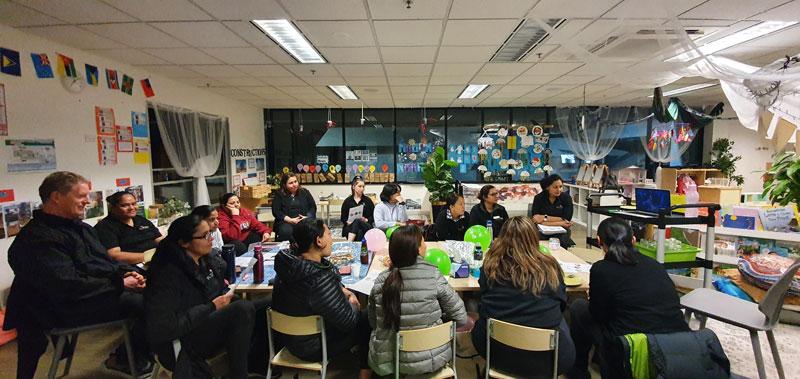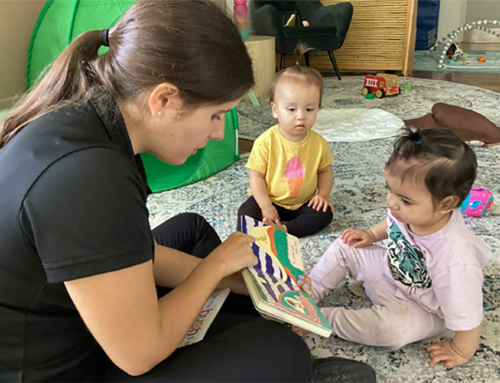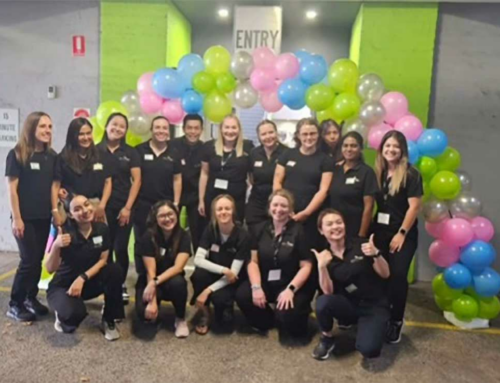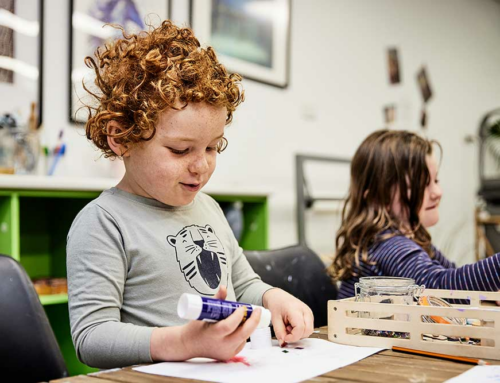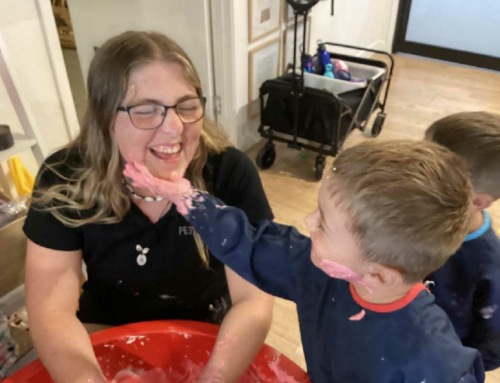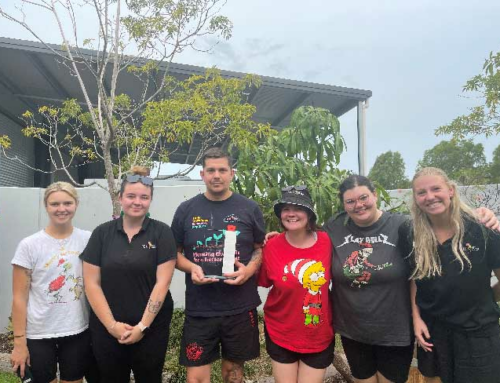At Petit Early Learning Journey we always seek new ways of doing things in education and care. We promote research through everyday practice and encourage our Educators to engage in a shared understanding of contemporary teaching approaches.
Our teams are dedicated to making a difference in every child’s life. They explore quality pedagogy to develop their ideas through reflection and by observing and learning about what others are doing in our sector.
We invite other Educators to learn how our teaching teams engage with pedagogy in everyday practice which reflects on Petit ELJ’s belief “Teaching teams to engage with contemporary teaching approaches”.
To provide us with a deeper understanding of innovative practices in early childhood education and care, we’ve invited the leadership team from Petit ELJ Barton to discuss:
- Their approach to research in everyday practice.
- How using contemporary theories have helped them to make sense of different circumstances within their teaching studios.
- Why it is important for Educators to introduce innovative practices in early childhood education and care.

Engaging with pedagogy in early childhood education
A high-quality pedagogical practice embodies theories and research about children’s learning and development. Quality teaching in early childhood education recognises and supports the United Nations Convention on the Rights of the Child.
“Our nursery team is currently working on how to make our pedagogies more visible in our learning environment,” says Lutgardes (Luchi), Baby Boulevard studio’s Lead Educator. “We’re purposefully and intentionally using the pedagogical terms in our practice as a reminder of the very essence of why we use them.”
“For example, recently, we had a training on the Phoenix cups approach. So, whenever we talk about an unsettled child, we would say their safety cup still needs filling, or their connection cup is empty.”
“This approach gives us an idea of what areas we need to focus on with a particular child. It immediately centres all Educators on the same goal. Although there are times when we feel it does not provide the desired outcome, we’re committed to pursuing this approach and allowing it to have the opportunity to succeed.”
“Making this learning approach more visible provides us with a vision of what we want to achieve as a team.”
“The idea of a new teaching approach is born from the analysis and reflection of observations,” says Roseyra (Rosie), Burrows Lane studio’s Lead Educator.
“It is essential to discuss new approaches with the team as each person has a different perspective. It also allows us to create and plan the process for its introduction into the studio.”
“It is important to start by asking the questions:
- Will the new approach help children’s development?
- Is it necessary?
- What are the important points to decide a new approach?”
“As a team, we plan, take actions and evaluate contemporary pedagogies. It is important to motivate and support the team, be consistent and reach the same goal together. We evaluate the success of quality teaching practices by measuring the positive changes in the growth and development of children.”

Learning begins the moment a child enters an early childhood education and care centre
“I believe learning within our education and care environment takes place from the moment a child enters the centre,” says Sangeeta, Haven Place studio’s Lead Educator. “Instantly, the pedagogy we apply builds positive relationships with the children and the families by supporting them emotionally.”
“As a child becomes confident through emotional support, they progress into exploring our environment independently, enhancing their social skills. During the process of exploration, we engage and communicate with a child, motivating and scaffolding their experience.”
“At the same time, we observe and identify a child’s interest and learning development. As a result, we adopt a holistic approach to support a child’s growth, learning and development.”

Case studies: How contemporary theories provide innovation in early childhood learning
“Circle time” in our Baby Boulevard studio
“With our inquiry focusing on our babies’ independence, we used the circle of security,” says Luchi. “We wanted this pedagogy to be more visible in our studio, so we intentionally put our round mat in the middle and at every group time we gathered around it.”
“Instead of calling it group time, we started saying ‘circle time’ as a reminder to engage in ‘circle of security’ with our babies. After we do some activities together, we let our babies explore other learning corners of the studio while we stayed on the mat with the ones who may want to spend more time with us or may still need time settling.”
“We were able to identify who among our babies needed more primary caregiving or the ones who needed more freedom to move around. Because of this, we noticed an incredible change in our babies’ behaviour as we began to understand more about their needs and capacity to problem solve, move and play in their own ways.”
“We were quite happy with the outcome that we also started renaming our meal area, a ‘yarning circle’. It was another attempt to introduce the concept of making positive, meaningful and respectful conversations with our babies over food or during meal times.”

“Healthy Choices” in education and care: Burrows Lane studio
“The experience of interpreting social situations begins early for children. Margaret Donaldson’s research which has become a major principle in pedagogy in early childhood education, shows that reflective awareness develops when a child uses what they already know to understand their environment better,” says Rosie.
“Vygotsky’s theory also emphasises the social aspect of play. It looks at the value of both adult-led and child-initiated play, a philosophy that is reflected in the UK’s Early Years Foundation Stage – Statutory Framework (EYFS):
1.8 Each area of learning must be implemented through planned, purposeful play and through a mix of adult-led and child-initiated activity.
“Both theories link to children’s development involved in social behaviour and they gave us the support to understand how we could develop and carry out the planning of our project called “healthy choices” to generate a positive environment in our room.’
“The result was the reduction of incidents in our room and an increase in the positive interactions between children and Educators, which is reflected in individual development and language.”

“Self-serving” in our Haven Place studio
“Our inquiry for this term is enhancing children being responsible,” says Sangeeta. “One of the experiences we are implementing in our room is the idea of self-serving by encouraging the children to use tongs.”
“We have observed a group of children doing exceptionally well in self-serving, while others are gradually grasping the skills to use the tongs efficiently. The interesting part of this observation is age doesn’t matter. Some younger children can handle the tong better than older-aged children.”
“So, to promote the development of their muscles and fine motor skills for using the tongs, we organised a sorting corner where children get involved in sorting teddies by their colour.”
“To sort, they use real tongs based on their size-level from the kitchen thus adopting Maria Montessori’s theories into practices. She believed setting real and child-sized resources would support children’s learning and development through everyday practices.”
“Now it’s an ongoing process. We found our children are enjoying this corner and are always excited to use tongs while sorting.”

Why is it important for Educators to introduce innovative practices in early childhood education?
“As daunting as it sounds, I think Educators must have a constant commitment to innovative practices,” says Luchi. “The Australian Early Years Learning Framework (EYLF) has articulated and captured a lot of strategies and key ideas for us to engage in continuous improvement within our practice.”
“This is not only because it is critical for the improvement of our professional development as Educators but primarily because we genuinely value the early years’ development of every child.”
“It is important to improve a specific situation or solve an identified problem in children’s learning,” says Rosie. “The different practices facilitate the learning process through scientific, artistic and psychological methods that foster a dynamic and fun environment for children.”
“Introducing innovative practices is important as it encourages children to develop higher-level life skills of exploring, problem-solving, decision-making, and being imaginative and creative,” says Sangeeta.

Recognising Educators professional development needs through innovation in early childhood education and care
“Being an educational leader at Petit ELJ Barton facilitates a great platform for me to share intentional pedagogies and knowledge,” says Manisha, Educational Leader. “It allows me to create and continue a culture of learning which concurs with:
“Knowledge isn’t the key to success, applying knowledge is”
– Phillip E. Rosner
“It is about finding the potential in everyday projects in education and care which reinforces curiosity and innovative practices. It also inspires Educators to dive deeper into the inquiry, research and teaching strategies.”
“Recognising Educators’ professional development needs is imperative for continuous improvement and the quality of education and care for children in their early years. We discovered a purpose to further professional development opportunities through the:
- Phoenix Cups training.
- Circle of security which uses attachment theory.
- Serve and return, which reflects loose parts theory.”
“Along with identifying suitable professional growth opportunities for Educators, I am also finding different and innovative ways to improve practices through continual:
- Observations.
- SWOT analysis.
- Inquiry conversations.
As well as role-modelling the ways Educators can involve families and children to be part of the decision-making and curriculum.”
“This vision reflects Petit ELJ’s beliefs and is also inspired by my personal pedagogical philosophy of collaborative partnerships with families, children and Educators to create a positive workplace pedagogical culture through informed and reflective practices to lead learning and positive curriculum change.”

Dive into education and care with friends at Petit Early Learning Journey
Are you seeking an early education and care environment where you feel a sense of belonging and where you are encouraged and celebrated for embracing learning? We believe in working collaboratively with a shared approach to pedagogy.
At Petit ELJ our commitment to continuous improvement, learning and personalised professional development gives you the freedom to become your best self. We offer mentoring, leadership programs, and fun team-building opportunities where you can thrive.
Get on board with Petit Early Learning Journey. Life is too short not to share it with friends.
